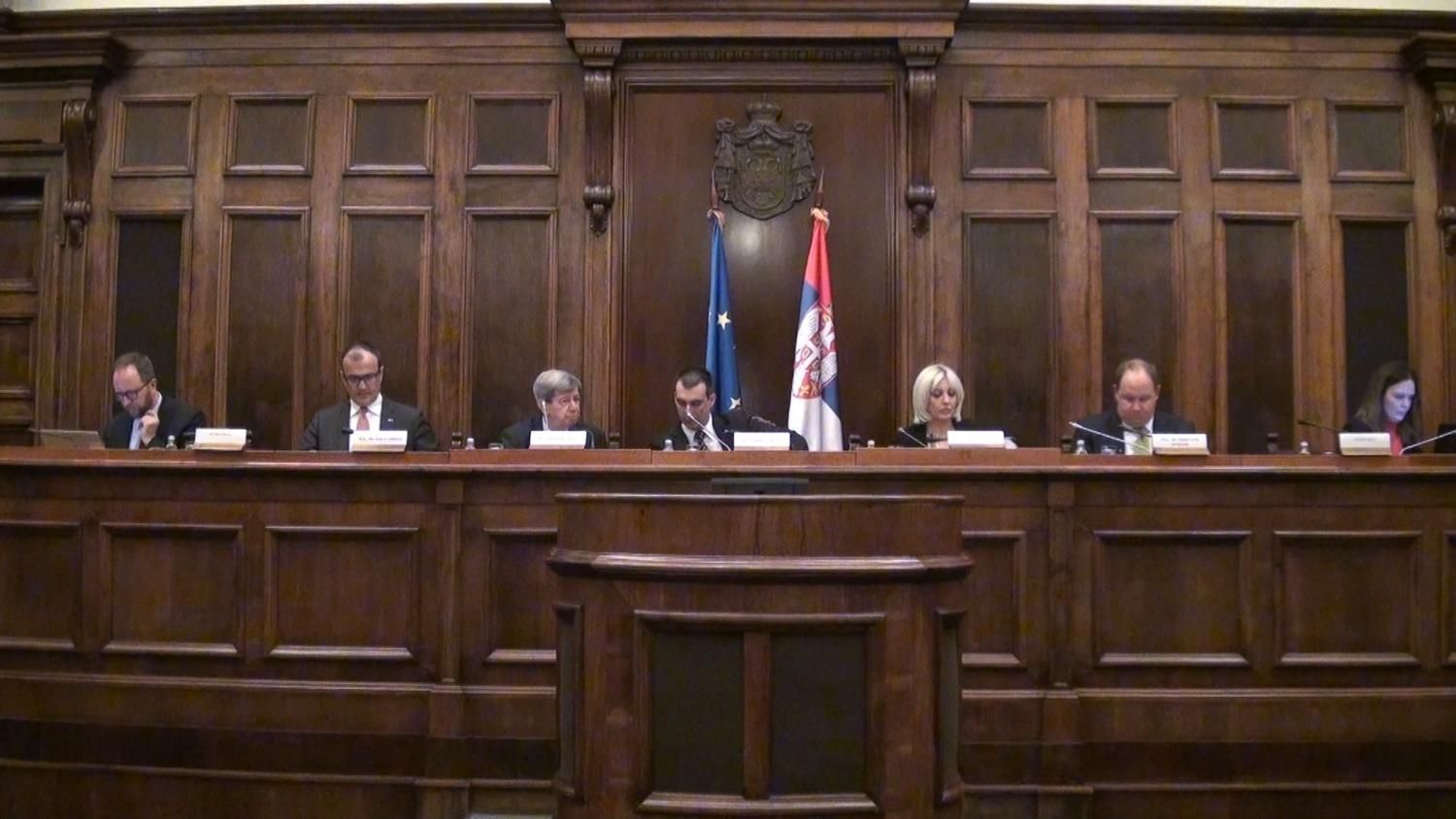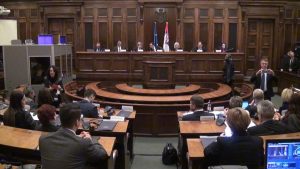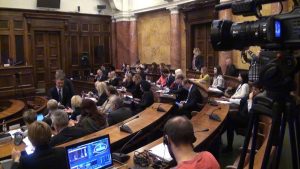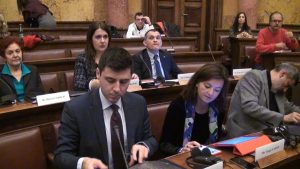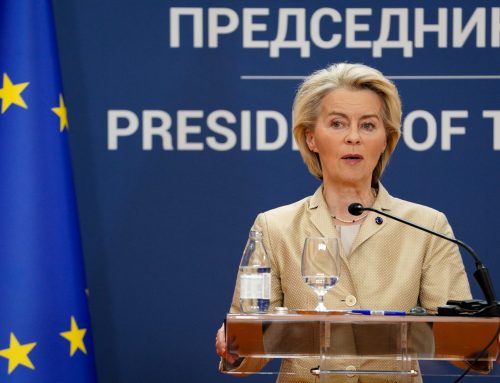“An air of readiness to take the enlargement process further to the Western Balkans is felt in all European institutions,” said President of the European Parliament Delegation Eduard Kukan during the meeting of the European Union-Serbia Stabilisation and Association Parliamentary Committee (SAPC) held today at the National Assembly of Serbia.
“You should seize this opportunity, but you should also provide evidence of the progress,” Kukan said.
The SAPC meeting was opened by Eduard Kukan Head of the EP Delegation and Vladimir Orlic Head of the National Assembly Delegation. Also, the MPs heard opening statements by Jadranka Joksimovic Serbian Minister of European Integration, Estonian Ambassador to Serbia Daniel Erik Schaer and Head of the EU Delegation to Serbia Sem Fabrizi.
Kukan: There will be no new requirements for Serbia
Eduard Kukan said that Serbia was making good progress in the EU negotiation process and commended recent opening of two new negotiation chapters, adding that some had, however, expected more chapters to open on 11 December in Brussels.
“We want a strong and fair union and in order to let a country into the family of democratic states, we need a partner that upholds the rule of law and independent judiciary,” Kukan said and added that “the talks are the process of state-building.”
He said that the future of Kosovo and media freedom should also be discussed. “The European Parliament votes on every single EU-aspiring country… We have to give fair answers. We are ready to push for enlargement, but we need you to provide evidence so that we could support you,” Kukan said.
Kukan said that Bulgaria, as the next EU presiding country, was ready to take the enlargement process further. The same goes for its successor, Austria, the country that shares a rich historical experience with the Western Balkans.
Kukan noted that he was often under the impression that in Serbia “there is a tendency for self-pity.” “The EU has no intention of damaging Serbia.”
“The negotiation process is difficult and complex. There will be no new requirements for Serbia. Meeting those previously laid down will suffice,” Kukan said.
Joksimovic: There has been disillusionment with the number of opened chapters
Minister of European Integration Jadranka Joksimovic said that there had been some disillusionment with the number of opened chapters. “After we heard Mogherini and Juncker we were rightfully expecting the opening of at least three chapters,” she said and added that “accelerating the process of opening chapters can lend impetus to the reform process.”
“Reforms do matter, but the accession process eventually ends with a membership to the EU,” Joksimovic said.
2025 was mentioned as the best case scenario for Serbia and Montenegro’s membership to the EU, she said and added that “if candidates are expected to stick to deadlines, then they are entitled to more certain deadlines.”
Speaking of “regional approach to EU enlargement” Minister of European Integration said that such policy could at the same time “overestimate some and underestimate the others”. She added that he was not fond of the notion of “the Western Balkans” describing “Southeast Europe” as a more appropriate concept. She said the media landscape is “vivid and polarised” and “lacking professional responsibility due to tabloidization and circulation race.”
Fabrizi: Reforms are the most important accompaniment to the opening of chapters
Head of the EU Delegation to Serbia Sem Fabrizi described 2017 as “a good year,” the year Serbia opened six chapters and “prepared to open new ones.”
“Opening is indeed essential, but reforms are the most important accompaniment to the opening of chapters. Member States are interested not only in the opening of chapters, but also in the progress in the area of rule of law and Belgrade-Pristina dialogue,” Fabrizi said and added that the EU would remain Serbia’s main trade and investment partner.
He said that Serbia “has made a few steps forward when it comes to regional cooperation.”
On behalf of the EU presiding country, Estonian Ambassador to Serbia Daniel Erik Schaer recalled that in one of its reports the European Commission said there was progress in the rule of law, but that much more should be done.
“You should focus on fighting against corruption, strengthening the freedom of media and stepping up justice reform. Foreign policy should be harmonised with the EU, restrictive measures included,” he said.
He welcomed the opening of the internal dialogue on Kosovo and added that “EU enlargement to the Western Balkans will be at the top of its agenda in coming months,” because “Western Balkan countries belong in the EU.”
Fajon warns of media landscape and abuse of parliamentary procedures
MEP Tanja Fajon said that she spoke to citizens and NGO representatives who told her that “the media are dwelling in a hostile environment.”
She expressed concern over the fact that the 10-hour discussion on budget was taken over by the ruling party MPs and reminded that organisation CRTA had shut down the Open Parliament web-site on the grounds of undermining the institution of the National Assembly of Serbia as the highest representative body, particularly due to abuse of parliamentary procedures, i.e. the adoption of next year’s budget without a discussion.
MEP Gunnar Hökmark said that no one was asking Belgrade to do anything that would be bad for Serbia.
“Stop talking about the negotiating requirements – the rule of law, independent judiciary and combatting corruption – as some sort of a sacrifice. EU member or not, it is good to have independent judiciary and to fight against corruption. The requirements imposed on you have already been laid down before all EU Member States,” said Hökmark.

